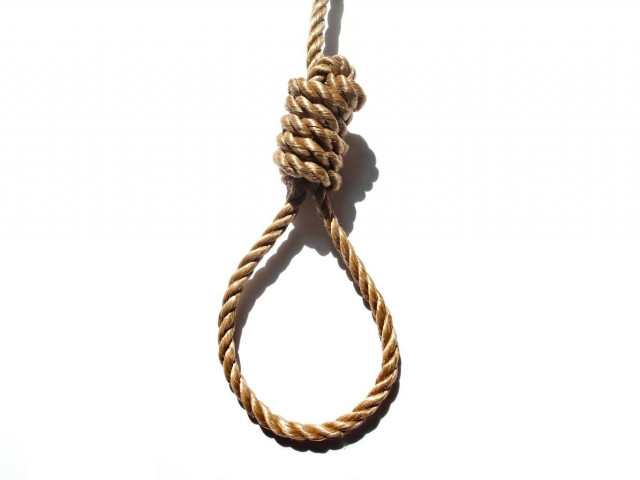Country struggles to combat rising suicides
Pandemic related hardships, stress and domestic disputes are the leading causes of people taking their own life

Not everyone enjoys the luxury of hoping for a better tomorrow; some amongst us opt to depart when the going gets tough or internal conflicts cannot be overcome.
Awareness days exist to highlight issues that might not get traction or newscycle time regularly and in Pakistan’s context, suicide is one of these issues. Given the spotlight the seemingly never-ending pandemic has taken, it is easy to forget how a significant number of the country's population is still recovering from extended lockdowns which caused lifestyle changes and loneliness.
The domino effect that the superspreader has had on people’s lives has not only increased stress but resulted in financial hardships, unemployment, and rising domestic violence. All of which are contributing factors in Lahore’s 22 reported deaths, due to suicide, over the past year. Amongst these 22 was 30-year-old Shagufta, a resident of Mustafaabad, who jumped in front of a train owing to frustration from domestic disputes and 22-year-old Anam who ended her life by strangling herself to death after being dejected by her love.
Dr Rafia, Head of the Psychology Department at the Punjab University, while commenting on the recent uptick in Punjab’s suicide rate, informed the Express Tribune, “we have treatments for physical illness, but nothing is done for mental illness and that is why we hear about such tragedies.”
The lack of awareness regarding mental health, that Rafia mentions, is apparent from the 1,735 suicide deaths, in the year 2020 all over the country, out of which 1,086 were men and 649 were women as per the Human Rights Commission of Pakistan (HRCP).
Read More: Ex-cop nominated in suicide case
Amongst these statistics, was 13-year-old Gul Rukh, resident of Peshawar, who after quarreling with her parents consumed pesticide tablets and took her life. Unfortunately, Gul Rukh is not the only one from Khyber-Pakhtunkhwa (K-P). According to the data, available with the Express Tribune, in the last five years K-P’s Chitral district has the highest number of suicide cases reported. 46% of the 63 reported suicides over a five-year period were caused due to stress and various mental illnesses, followed by domestic violence at 23%.
Dr Khalid Mufti, a psychiatrist and former principal of the Khyber Medical College, informed that it was hard to keep track of the country’s suicide rate but in 2018 it stood at about 7.8%. Mufti believes that the deadly virus has only increased mental health problems and it was likely that the current suicide rate was much higher than 2018. “Overall, in the country, the lack of psychiatrists and clinical psychologists exacerbates our suicide crisis,” he added.
The HRCP’s Sindh chapter reports that there were at least 29 attempted suicides in the province last year. The blame for these is pinned on the rising unemployment, as the HRCP states: “The working class, daily wage labourers, were hit hardest by lockdowns imposed in the province in the wake of the pandemic. A large number of workers lost their jobs and incomes due to the closing down of industries and businesses.”
Even more troubling than last year’s numbers out of Sindh, are the numbers in a biannual report of the Association for Water, Applied Education & Renewable Energy (AWARE) according to which at least 39 suicide cases were reported in district Tharparkar alone from January to June of this year. The report seconded the HRCP’s view and states that isolation inside homes due to lockdown and a lack of social contact results in mental depression leading to suicide.
Rafia believes that the need of the hour is awareness regarding taking care of one's mental health. “If mental health problems are not addressed then over the time, they develop more complications thus pushing one towards suicide,” she told the Express Tribune.



















COMMENTS
Comments are moderated and generally will be posted if they are on-topic and not abusive.
For more information, please see our Comments FAQ